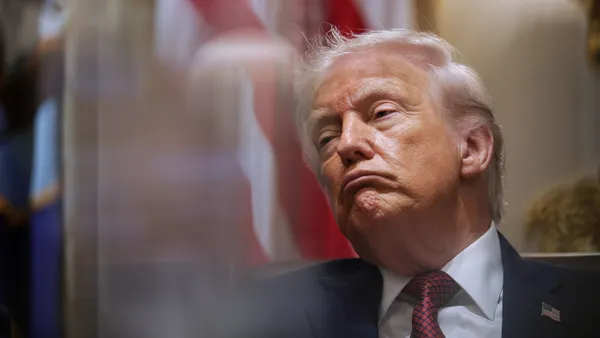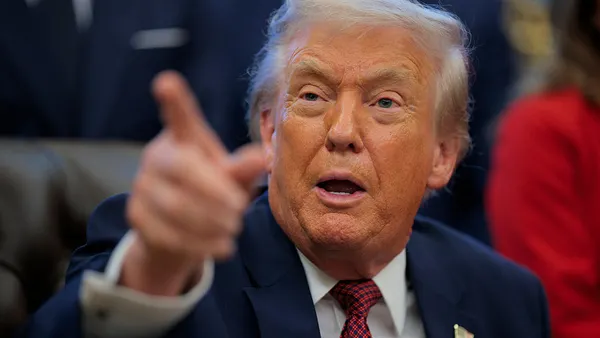Washington, D.C. — Vice President Mike Pence encouraged members of Congress and the manufacturing and business communities to voice their support for the U.S.-Mexico-Canada Agreement (USMCA) currently under consideration this legislative session, in a speech Tuesday at the Heritage Foundation, a conservative policy think tank.
In addition to touting $33 billion in savings to be gained from cutting "red tape" trade regulations, Pence hinted the agreement, once ratified, could give the U.S. leverage in ongoing trade negotiations with China.
Pence referenced an International Trade Commission estimate that the USMCA will bring about $70 billion in real GDP growth for the United States, and create nearly 180,000 jobs, though he did not specify over what period of time this would occur.
In addition, Pence said the increase in trade with Canada and Mexico would be a boon for the U.S. economy. "In total, American exports to Canada, we believe that we’ll see increases by $19 billion, and exports to Mexico will increase by $14 billion," he said.
These potential benefits are welcome news to some in the business community as domestic manufacturing and exports have suffered in recent months.
The Institute for Supply Management's Manufacturing Index, fell to 49.1% in August, the lowest it has been since January 2016. The index indicated the trade war with China was the dominant cause of contraction in a variety of major U.S. manufacturing industries as firms faced significant cost increases and uncertainty due to tariffs.
Perhaps as a result of this mounting economic pressure, the Vice President mentioned the USMCA's potential to impact other international trade relationships as well.
Multiple times throughout his remarks, Pence referred to China as both an example of a disadvantageous trade relationship and one where a renegotiation in the U.S.' favor could rectify "decades" of harm done to American industries.
Here, he said, is where a fully-ratified USMCA could work to the U.S. advantage in upcoming talks.
"The decades of China ignoring the rules of international commerce are over," Pence said, "By bringing North America together ... it will only strengthen the president’s hand as we demand that China end the trade abuses that have characterized the decades of the past."
While China's recent purchase of American soybeans and decision to exempt certain items from retaliatory tariffs has given some trade analysts cause for cautious optimism, a U.S. China Business Council survey found 80% of its members have already been adversely affected by the trade war and are not optimistic about the future.
As a result, with mounting recession predictions and a national election looming, the pressure is on to get manufacturing and trade growth back on track.
Pence said the administration is viewing the USMCA as a potential "template" for ongoing and future trade negotiations, possibly with China, Japan and the United Kingdom (if Brexit occurs).
Currently, the USMCA's fate waits to be decided by Congress. The Vice President expressed confidence that the deal could be approved this year and House Speaker Nancy Pelosi told CNBC in an interview that, despite some concerns about enforcement of environmental, pharmaceutical and labor standards, Democrats are "on a path to yes."
The agreement has already been ratified by the Mexican government but has not yet been approved by the Canadian parliament.














